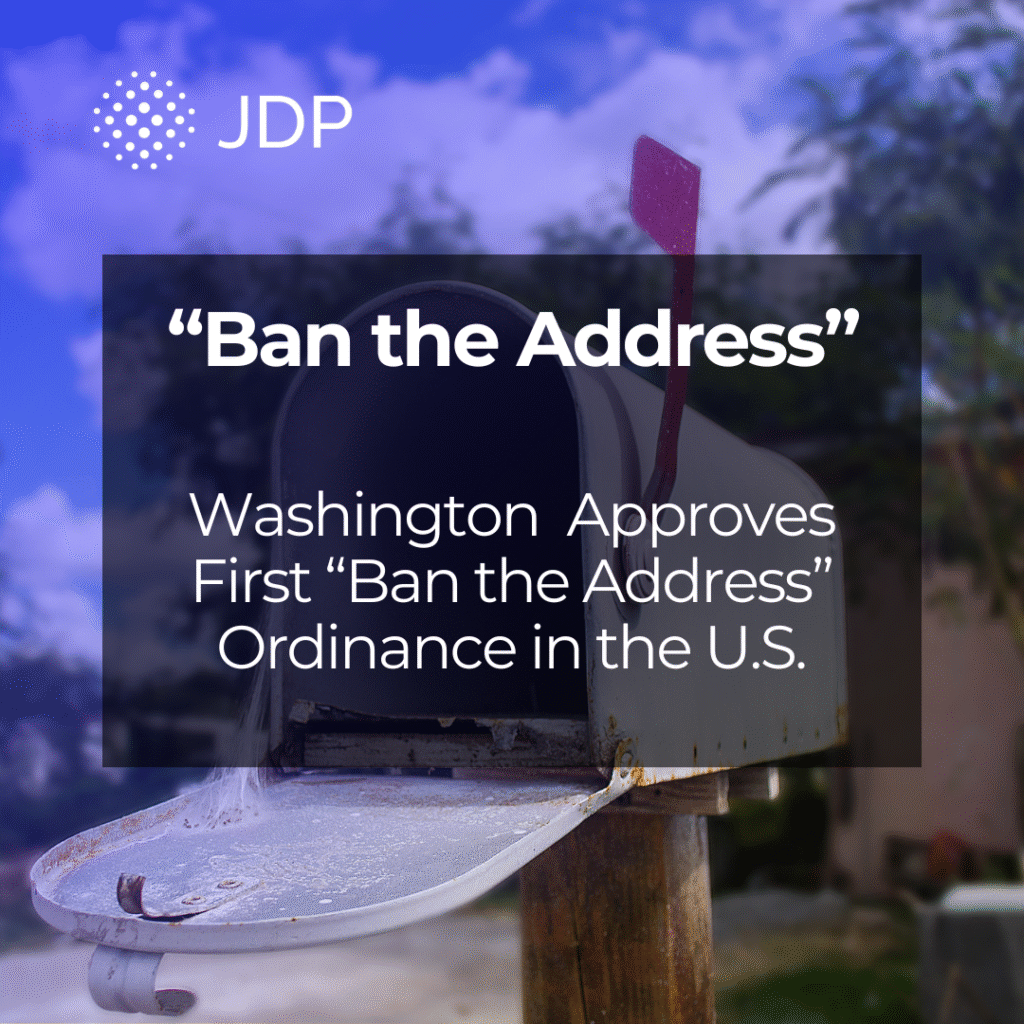Washington’s Fair Chance Act is getting a major update, including a new exceptional fair chance requirement —and employers need to be prepared.
WHEN
Under new amendments passed during this year’s legislative session, Washington employers will face significantly expanded obligations related to criminal background checks. House Bill amendment of 1747 introduces key changes to the Fair Chance Act that will roll out in two phases:
- Effective July 1, 2026 for employers with 15 or more employees
- Effective July 1, 2027 for all Washington employers, regardless of size
WHAT
While employers have been subject to the Fair Chance Act since 2018, HB amendment of 1747 makes the law more restrictive in several important ways:
- Position advertisements cannot contain messaging that would prevent or deter people with criminal records from applying
- The most impactful requirement that is unique to other fair chance laws is – At any time before a conditional job offer, if an applicant voluntarily discloses information about the their criminal record, the employer must immediately inform the applicant in writing of the Fair Chance Act requirements and provide a copy of the attorney general’s Fair Chance Act Guide for job applicants.
- Tighter limits on when inquiring about criminal history. Must be after making conditional offer. Candidates cannot be rejected for failing to disclose prior criminal records before receiving a job offer
- Policies that categorically and/or automatically exclude an individual due to criminal record(s) are prohibited. (This could affect grading/scoring/matrices practices for some employers)
- Pre-adverse Action must be based on adult conviction or pending trail records, and only if the employer has a legitimate business reason for doing so:
- negatively impact the individual’s fitness or ability to perform the position; or
- harm or cause injury to people, property, business reputation, or business assets
- Pre-Adverse must specifically identify the record(s) on which the employer is considering or taking adverse action upon, and hold position open 2 business days.
- Consideration and “Legitimate business reason” must be considered before action against a consumer. This includes:
- have a negative impact on the individual’s fitness or ability to perform the position sought or held; or
- harm or cause injury to people, property, business reputation, or business assets
- Adverse Action must include written decision to candidate that has specific documentation related to employer’s reasoning and assessment of each statutory factor(s) and impact on position or company that includes consideration of the following factors:
- the seriousness of the conduct underlying the adult conviction record;
- the number and types of convictions;
- the time that has elapsed since the conviction, excluding periods of incarceration;
- any verifiable information related to the individual’s rehabilitation, good conduct, work experience, education, and training, as provided by the individual;
- the specific duties and responsibilities of the position sought or held; and
- the place and manner in which the position will be performed.
This notification must also include company’s response to individual provided information from the first response – including but not limited to: consideration of rehabilitation, good conduct, work experience, education, and training.
In addition to HB 1747, House Bill 155 also passed this session and modifies the rules around sex offender registration appeals:
- Individuals with lifetime registration requirements may now appeal to a judge after 12 years, instead of the current 20.
- Those with a 10-year registration may appeal after 5 years, rather than 8.
Increased penalties are also included in this change – see the full article for details.
Legal counsel review of your practices is recommended for employers in located in and hiring Washington applicants (along with California (with additional requirement carve outs for municipalities), Illinois, New York, and Wisconsin, and other areas). Some states have enhanced notice requirements that go beyond the FCRA’s requirements.
Read more in SHRM’s Article or in Seyfarth’s Update.
Want to stay informed with frequent Compliance Updates from JDP? Sign up for our Compliance Newsletter today!
